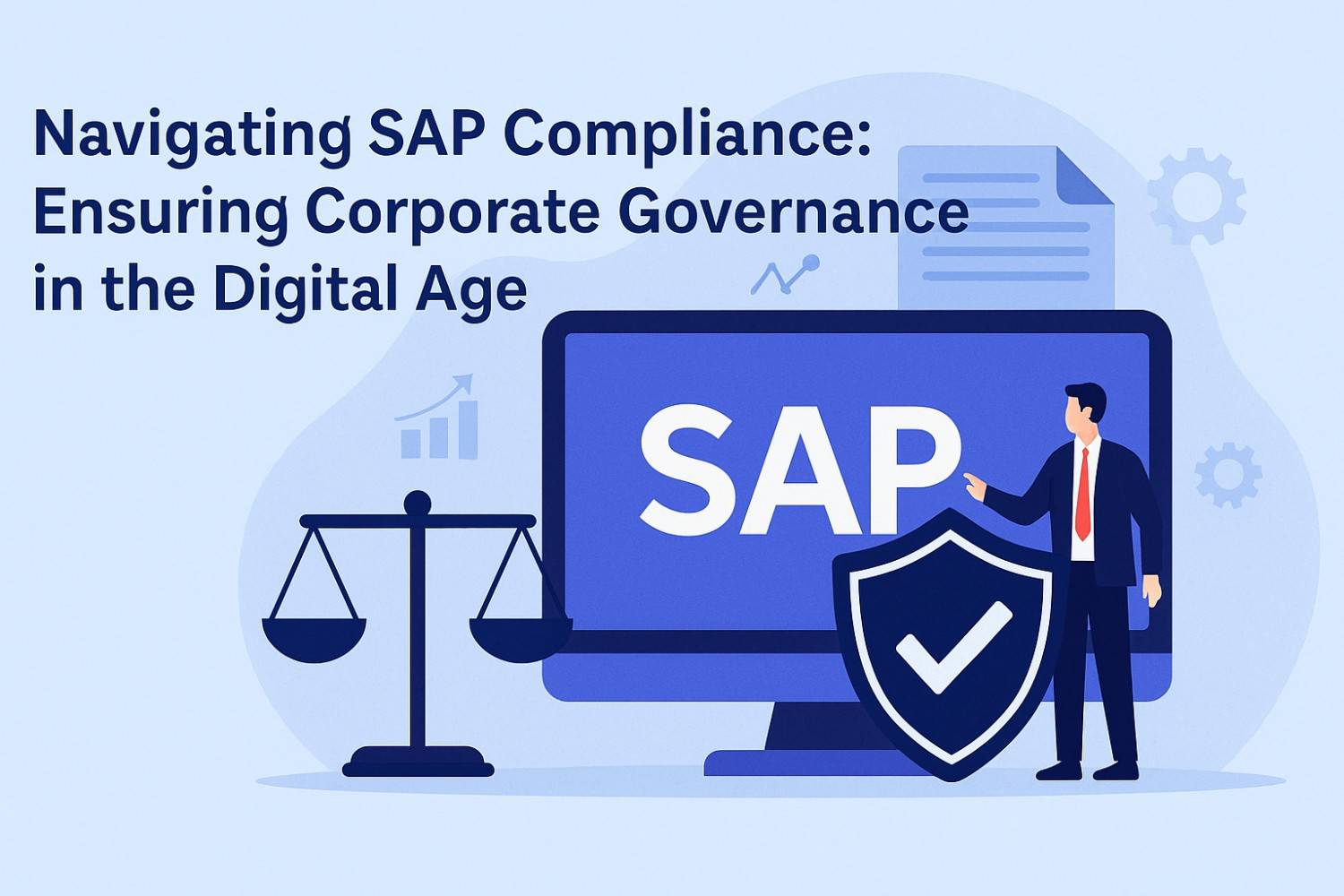Corporate governance has become a cornerstone of business efficacy and integrity, playing a crucial role in ensuring that companies adhere to legal standards and ethical practices. In today’s digital age, a significant portion of corporate governance revolves around the management of digital resources and software applications. Among these, SAP, as a leading enterprise resource planning (ERP) software provider, is pivotal to the functioning of numerous businesses. As such, SAP compliance is an integral aspect of maintaining corporate governance within technically-advanced business environments. This article delves into the various facets of SAP compliance and how businesses can navigate them to ensure robust corporate governance.
Understanding SAP Compliance
SAP compliance involves adhering to a set of policies, regulations, and standards that govern the use and management of SAP systems within an organization. Compliance is not a singular activity but an ongoing process that ensures data integrity, security, and the reliable operation of business processes through SAP software. It’s a multifaceted challenge that requires a comprehensive understanding of regulatory requirements, internal controls, and the technical configuration of SAP environments.

The Significance of SAP Compliance in Corporate Governance
Effective corporate governance is about overseeing the direction and control of an organization, and SAP compliance is a significant element in ensuring that businesses operate within the parameters of established laws and industry guidelines. In essence, being compliant helps in minimizing risks related to data breaches, financial inaccuracies, and legal penalties. Furthermore, it nurtures trust among stakeholders, including investors, customers, and regulatory bodies, affirming that the enterprise is committed to maintaining high standards of operation.
Essential Elements of SAP Compliance
SAP systems host a vast amount of data and handle critical business operations from financial reporting to human resources and supply chain management. The complexity of these tasks makes it vital for companies to focus on several key elements of compliance, including data security, access control, process integrity, and compliance with international standards such as GDPR, SOX, and ISO. Moreover, regular audits are required to ensure compliance efforts are on track and system vulnerabilities are addressed.
Best Practices for Navigating SAP Compliance
To effectively navigate SAP compliance, it is important to establish a robust compliance framework that includes clear policies, defined responsibilities, and regular training for employees. Automation of compliance processes can significantly reduce the burden on staff, while regular internal audits can help identify potential issues before they become serious problems. Additionally, businesses should invest in specialised tools and software designed to manage SAP compliance, leveraging technology to streamline governance.
Overcoming Challenges in SAP Compliance
Maintaining SAP compliance can present various challenges, such as adapting to new regulations, ensuring proper staff training, and managing complex SAP landscapes. Organizations are often required to balance the need for innovation and scalability with the requirements of compliance. Effective communication across departments, continuous monitoring of SAP environments, and a proactive approach to updating systems and processes are key in overcoming these obstacles.

Continuous Improvement and Compliance
Corporate governance in the digital age is not a static discipline; it evolves with the landscape of business and technology. For this reason, SAP compliance should be treated as a continuous improvement exercise. Organizations must stay abreast of changes in laws and regulations as well as advancements in SAP software itself. This dynamic approach ensures not only compliance but also drives efficiency and competitiveness in the market.
Ensuring Compliance through Partnerships and Expertise
Given the complexity and technical nature of SAP systems, many businesses benefit from partnering with SAP compliance experts and consultants. These are professionals who specialize in navigating the intricacies of SAP environments and can offer tailored advice, effective solutions, and hands-on support to maintain compliance and enhance governance standards.
Strategic Impact of SAP Compliance on Business Operations
Compliance should not be viewed merely as a legal necessity but as a strategic business advantage. Well-governed SAP systems ensure operational excellence, data accuracy, and process efficiency, which in turn lead to better decision-making and a stronger competitive position. In short, SAP compliance can be a driver for growth and success in the digital era.

Conclusion
As we have explored, SAP compliance forms a critical aspect of corporate governance in the digital landscape. By understanding and implementing the tenets of effective SAP compliance, businesses can ensure they are operating responsibly, efficiently, and in accordance with legal and ethical standards. With a proactive stance, continuous monitoring, and a willingness to adapt to technological and regulatory changes, organizations can navigate the complexities of SAP compliance and support overall corporate governance.
In conclusion, businesses must prioritise SAP compliance in their governance efforts, seeking to bridge the gap between technological progress and regulatory adherence. It is through such commitment to compliance that businesses can assure stakeholders of their integrity and reliability, preserving their reputations and laying down a foundation for long-term success in a rapidly evolving digital world.












